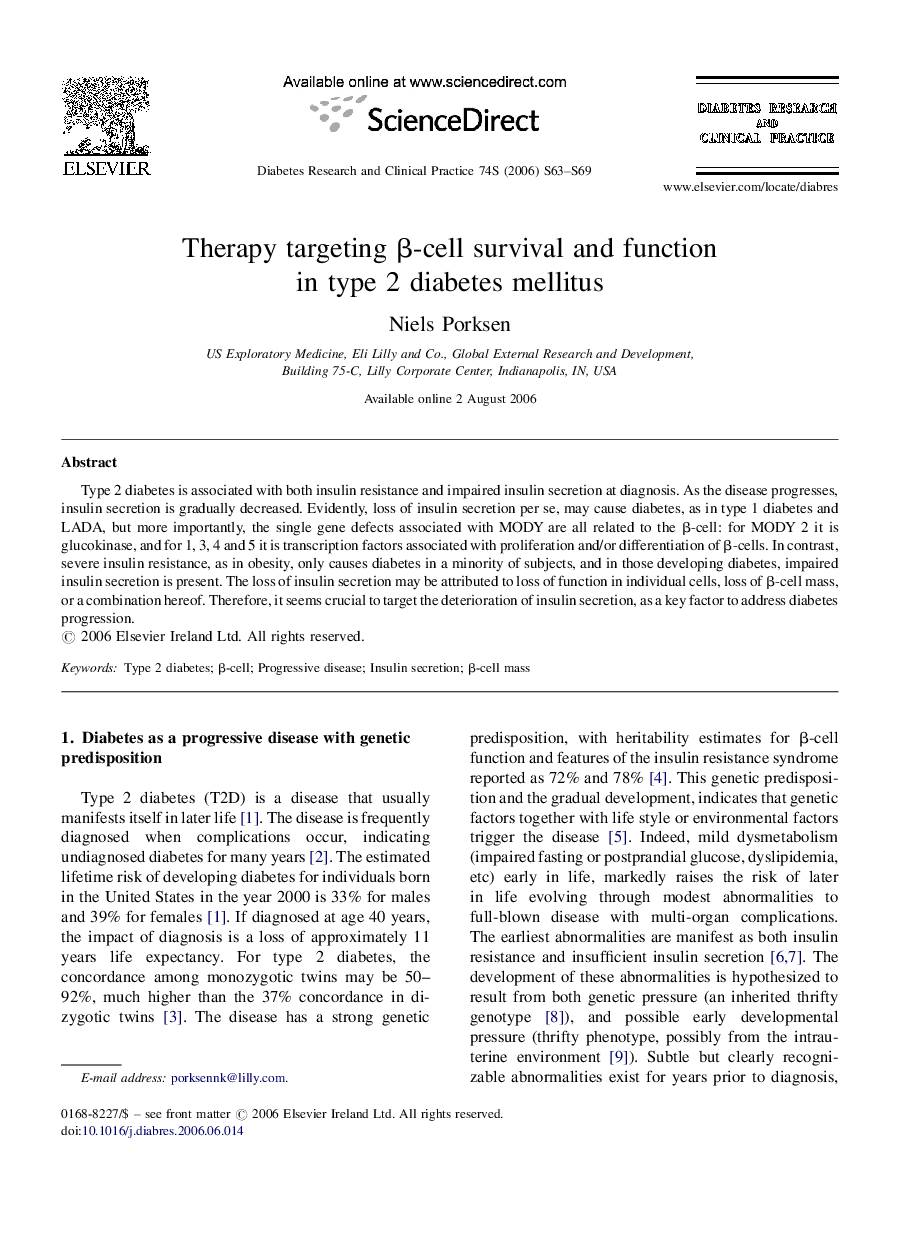| Article ID | Journal | Published Year | Pages | File Type |
|---|---|---|---|---|
| 2798977 | Diabetes Research and Clinical Practice | 2006 | 7 Pages |
Abstract
Type 2 diabetes is associated with both insulin resistance and impaired insulin secretion at diagnosis. As the disease progresses, insulin secretion is gradually decreased. Evidently, loss of insulin secretion per se, may cause diabetes, as in type 1 diabetes and LADA, but more importantly, the single gene defects associated with MODY are all related to the β-cell: for MODY 2 it is glucokinase, and for 1, 3, 4 and 5 it is transcription factors associated with proliferation and/or differentiation of β-cells. In contrast, severe insulin resistance, as in obesity, only causes diabetes in a minority of subjects, and in those developing diabetes, impaired insulin secretion is present. The loss of insulin secretion may be attributed to loss of function in individual cells, loss of β-cell mass, or a combination hereof. Therefore, it seems crucial to target the deterioration of insulin secretion, as a key factor to address diabetes progression.
Related Topics
Life Sciences
Biochemistry, Genetics and Molecular Biology
Endocrinology
Authors
Niels Porksen,
